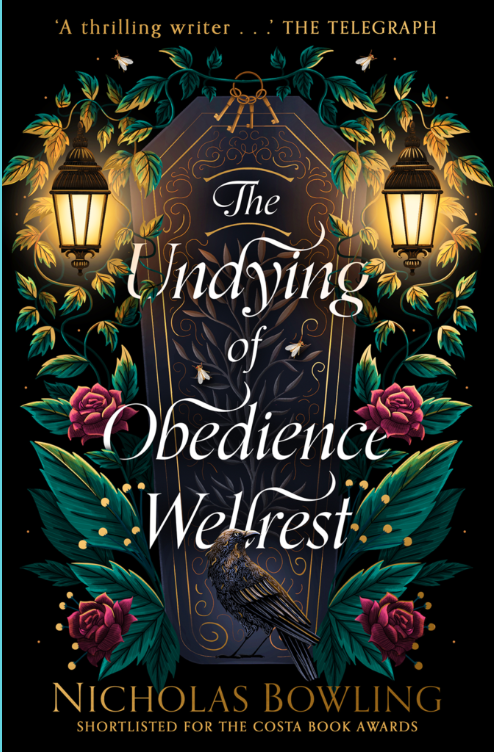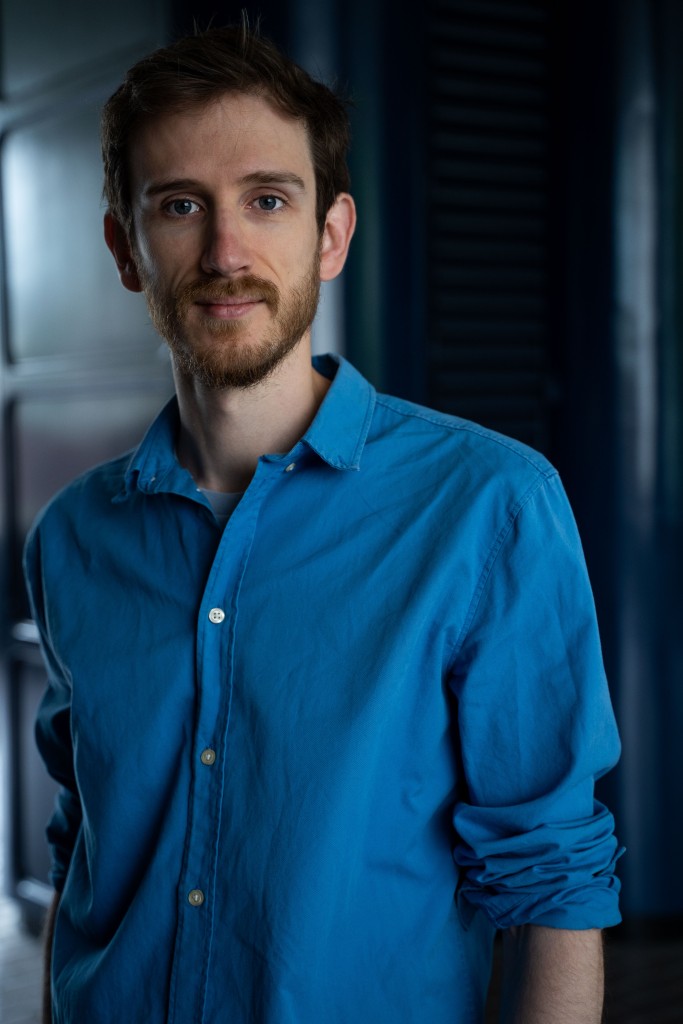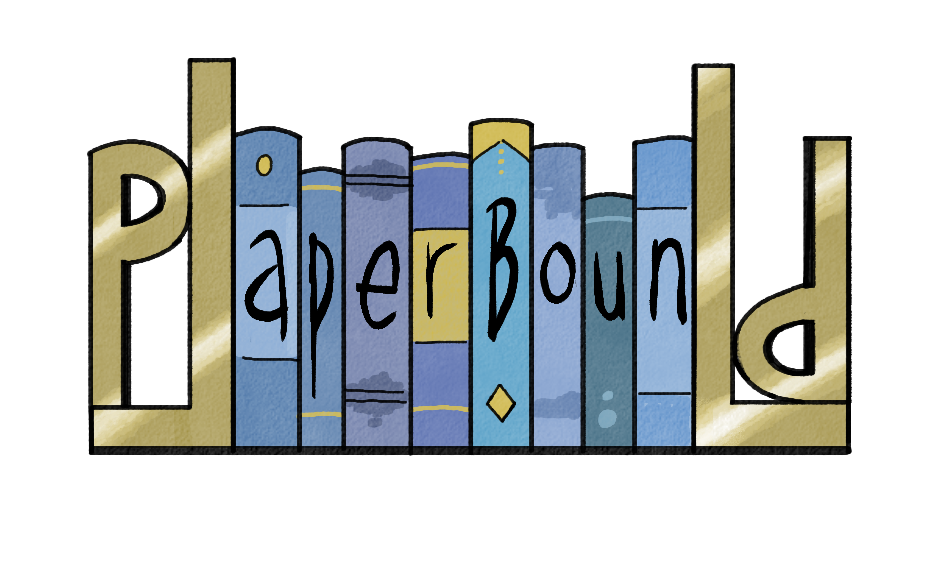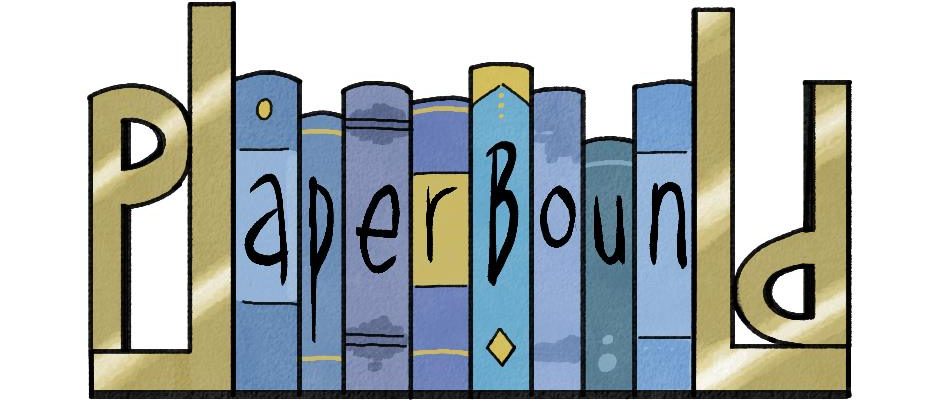We were pleased to catch up with Costa Award shortlisted author Nicholas Bowling all about his recent release The Undying of Obedience Wellrest – a novel deliciously described as Jane Austen meets Mary Shelley’s Frankenstein.

Could you tell us a little about your book, The Undying of Obedience Wellrest?
It’s a fairly straightforward fantasy-tinged gothic-horror-comedy-semi-romance. It’s set in the early nineteenth century, and it’s about a young gravedigger (Ned) who crosses paths with an aristocratic teenage girl (Bede) who is trying to make progress as an amateur chemist and escape an arranged marriage. So, sort of Jane Austen meets Frankenstein. It’s told from both their points of view and sees them weaving in and out of danger and death and friendship and maybe (maybe?) love.
This is a brilliantly gothic story that combines science with mystery, death, feminism, and a sprinkle of magic. Where did the inspiration for this story come from?
Sometimes a whole book, and a whole world, seems to arrive in my brain fully formed, but this one actually started from a much smaller seed. Originally it was all about Ned and Pa’s relationship. I had an image of a grandfather and grandson gravedigging team – I think originally they solved mysteries, or fought demons, or something. And I liked the idea of a parish churchyard as a little self-contained world. I was reading Shirley Jackson’s We Have Always Lived In The Castle at the time, and found the voice of Merricat very inspiring. I loved the idea of writing from the point of view of the weirdest, most isolated character in the story – the point of view of the “monster” really. So the protagonist is on the outside of acceptable society looking in, but, in their own mind, is actually on the inside looking out.
Originally it was set in the 21st century, but once there were body snatchers involved it made more sense to take place in the 19th century. And once it was set there and then, all the interesting stuff about early science and the Enlightenment and the links to Frankenstein started to make itself felt. And Bede emerged from that, as an intelligent, headstrong young woman ensnared in the mores of that era. It’s no coincidence that Bede is short for “Obedience”. It’s really, really fun writing a character who is much smarter and more furious than you are.
It’s really, really fun writing a character who is much smarter and more furious than you are.
All of the characters here are so unique, and brought to life so wonderfully in your writing. Do you have a process when creating your characters, or do they materialise in the page?
As pretentious and cliched as it sounds, I really do just listen and watch them and see what they do. I probably have a subconscious blueprint for each character somewhere in my brain – maybe an amalgam of certain people I’ve met, either in real life or in books – but it’s not like I draw up a spreadsheet of their traits and histories before I write about them. It really is just about following a feeling you have about them. And it’s nice to be surprised when they reveal something of their character or their past to you.
Do you have a favourite character from your book (Mosca?), and why?
Obvious to say, but I loved both Ned and Bede. Ned because I think he’s the person I actually am (quiet, introspective, a bit odd) and Bede because she’s the person I often would like to be (smart, self-assuredl, a zinger for every occasion). Perhaps they really are two halves of my psyche. They make a perfect unlikely pairing.
Mosca? I still feel like there’s so much mystery around him. I don’t even know what he’s thinking or feeling. Maybe I’ll write a companion piece to the main book that’s just his internal monologue, all in stream of consciousness fly-speak.
You have an insanely good opening line. Did this come to you straight away or was it something you came back to and developed later? Any tips for aspiring writers trying to write their own attention grabbing first line?
Thank you very much! I think I said this on Twitter (sorry, X). Those were literally the first words I wrote. The first words of the first chapter of the first draft, maybe four years ago. And that line stayed at the top of the Word document through all of the many, many drafts and edits. I think the only thing I had to change was Ned’s age. I knew when I first put the line down that it was a keeper. Sometimes things like that come to you and you can’t quite believe it and you give yourself the rest of the day off.
I don’t know if I have any tips or secrets about an opening line. I suppose a good opener is always really a question in disguise. A tiny, self-enclosed, one line mystery.
There are fabulous twists and turns in this book. Do you plot everything before you start, or do the details develop as you write? Do you have any advice on writing plot twists?
I think plotting is actually the thing I find hardest. I never plot in advance, at least not in any great detail, and always end up tying myself in knots. I never learn, but I also think the thing feels dead on the slab if every little nook and cranny of plot is already explored. But the really BIG twists, I do know about them in advance. Usually I have one prepped for about halfway, and one for the end, and if you’re aware of them then you can at least have some fun with red-herrings and easter eggs (pretty weird brunch recipe for you, there) as you’re writing.
What is your favourite part of the writing process? And are there any aspects you’re not so keen on?
Favourite bits – and I don’t think I’m alone here – are the very beginning and the very end. I still love the thrill of the blank page, of possibility, of creating something entirely new. And I love fine-tuning the prose at the very end, and putting in little nods and callbacks to the various twists and turns. Basically everything in between is all wailing and gnashing of teeth.
Structural edits in particular are like the worst, least fun, most labour-intensive game of Tetris you’ve ever played.
Can you tell us about anything else you are working on at the moment?
I’m working up two ideas at the moment. One is an inverted Arthurian legend (can’t really say more than that, but it involves a young swineherd and a supremely unlikeable King Arthur). The other is a sort of ecological fable about a frozen giant. It’s like Ted Hughes’ The Iron Man, set in the Himalayas, reimagined by Studio Ghibli.
I also have a book for adults coming out in Jan 2025 under the name Nick Newman – but I really can’t tell you any more about that!
The Undying of Obedience Wellrest is out now and published by Chicken House Books.

Nicholas Bowling
Nicholas Bowling is the critically acclaimed, Costa Award-shortlisted author of Witchborn, In the Shadow of Heroes and Song of the Far Isles. He grew up in Chester and studied English and Classics at Oxford University. As well as writing, Nick has been a classics teacher, has co-written, recorded and released an album and two EPs and is now a bookseller. He lives in London but gets out when he can to climb mountains or swim in very, very cold water. .


